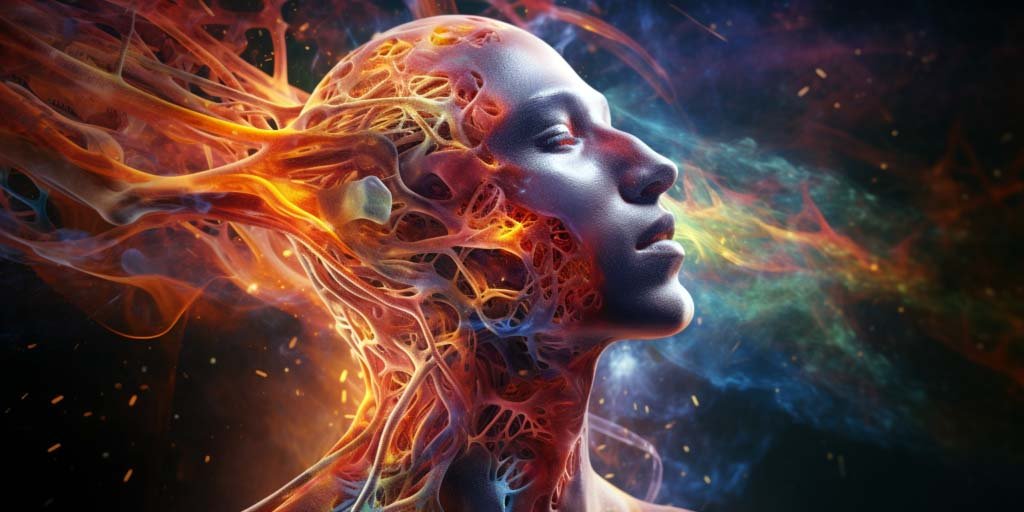
B.Tech in Mechanical Engineering
Quick links
Fees
Placement
Scholarship
Overview
The Department of Mechanical Engineering at JIET (An Autonomous Institute with NAAC ‘A’ Grade, affiliated with Bikaner Technical University) is the best Mechanical Engineering Department in western Rajasthan, situated in Jodhpur. It is actively associated with grooming engineering graduates in Mechanical Engineering by nurturing them with inputs from various basic and specialized subjects involving production, industrial, thermal, and design engineering. The department was established in 2003-04 at Jodhpur region with an intake of 60 students. NBA accredited the department in April 2011 for three years. After that, it was reaccredited twice, with the NBA cumulating three consecutive accreditations with NBA in a row. The department also got the approval of the Research Centre, RTU, Kota, in 2016-17 with two approved research supervisors. A wide selection of projects, seminars, and training facilities, besides technical visits to industrial enterprises, generates enormous potential and confidence among the students enabling them to independently handle life-size problems in their engineering careers. Currently, the department is conducting a 4-year full-time undergraduate course-B. Tech. in Mechanical Engineering with an annual intake of 120, Current subjects like Production Engineering, Operation Management, CAD/CAM, Ergonomics, Robotics, Mechatronics, etc., are highlights of the curriculum, besides ongoing advancements and computational product design and development to accept and face the global competition.
Course Highlights
| Course level | Graduate |
|---|---|
| Duration | 4 Years |
| Average Salary Package | INR 7,00,000 |
| Highest Salary Package | INR 33,00,000 |
| Examination Type | Semester System |
| Program Eligibility | 10+2 or equivalent with a minimum of 45% marks |
| Top Recruiting Organizations | Infosys, TCS, Capgemini, Wipro, Accenture, Tekion,& many more |
Educational Objectives
To build a strong foundation in Mathematics, Science, and Engineering fundamentals with soft skills.
To develop competency to analyze, design, innovate, and develop products regarding real-life applications.
To generate ethical behavior and effective communication and nurture leadership qualities for a successful professional career to develop society for a productive economy.
To generate a multi-disciplinary approach to develop research and lifelong learning.
M.E. Placements
BYJU'S
Skolar
SkillVertex
Verzeo
Equity Pandit
Bloombrain
Pinnacle Infotech
ICICI Prudential Life Insurance
Masu Brakes Pvt Ltd
Infosys
Top Recruiters
Celebal Technology
UltraTech
ISRO
DRDO
IIT Jodhpur
CADC
Tata motors
NBC
All India
CEERI pilani
About Mechanical Engineering
+ VISION
To be a center of excellence for education and research producing leaders in Mechanical Engineering serving nation and the world.
+ MISSION
- M1: To develop strong foundation in fundamentals to nurture quality education.
- M2: To promote knowledge, skill and ethical values among students for team spirit leadership and commitment.
- M3: To generate Entrepreneurial skills and promoting interest in higher education and research to face global challenges.
- M4: To inculcate excellent academic environment for lifelong learning.
+ PROGRAM EDUCATIONAL OBJECTIVES (PEOs)
- PEO I To build a strong foundation in Mathematics, Science, and Engineering fundamentals with soft skills.
- PEO II To develop competency to analyze, design, innovate and develop products regarding real-life applications.
- PEO III To generate ethical behavior and effective communication and nurture leadership qualities for a successful professional career to develop society for a productive economy.
- PEO IV To generate a multi-disciplinary approach to develop research and lifelong learning.
+ PROGRAM SPECIFIC OUTCOMES (PSO)
- PSO1: Graduates get competency to understand the practical aspects of Thermal Engineering, Automobile Engineering, Power Plant Sector, and Human Comfort applications for better hygienic life, etc.
- PSO2: Graduates get competency to understand the nature and behavior of various metals and manufacturing processes with their applications. PSO3: Graduates get competency in optimization and learn and cultivate economics in the system.
- PSO4: Graduates get competency to understand the basic knowledge of modern machining software with their application in the industry.
- PSO5: Graduates get proficient in demonstrating the application of various interdisciplinary subjects used in applied multi-disciplinary fields of application
** PROGRAM OUTCOMES (POs)**
- PO1: Engineering Knowledge: Graduates will be able to apply the knowledge of Mathematics, Science, Engineering fundamentals, and soft skills to solve engineering problems.
- PO2: b Problem analysis: The graduate will be able to identify, formulate, and review research literature to analyze complex engineering problems for substantiated/validated/justified conclusions using principles of Mathematics, Natural Sciences, and Engineering Sciences.
- PO3: c Design/development of solutions: The graduate will be able to design solutions for engineering problems and design system components or processes that meet the specified needs of humans, the environment, and industry.
- PO4: d Conduct investigations of complex problems: Graduates can use research-based knowledge and methods, including the design of experiments, analysis, and interpretation of data to provide practical conclusions.
- PO5: e Modern tool usage: Graduate can create, select and apply appropriate techniques, resources, modern engineering, and advanced IT tools to solve complex engineering problems with the scope of applications.
- PO6: f The engineer and society: Graduate can apply the contextual knowledge to assess social, health, safety, legal, and cultural issues with the consequent responsibilities relevant to the professional engineering practice.
- PO7: g Environment and sustainability: The graduate will be able to understand the impact of professional engineering solutions for society and demonstrate knowledge of sustainable development.
- PO8: h Ethics: Graduate will able to apply ethical principles and handle ethical norms in industry and workplaces.
- PO9: Individual and team work: The graduate will able to function effectively as an individual and as a team member.
- PO10: j Communication: Communicate effectively to comprehend the report and design documentation to make productive execution.
- PO11: k Project Management and Finance: Graduate will able to understand the economics and manage finances, handle projects of national and international level.
- PO12: l Life-Long Learning: Graduate will able to learn in the broadest context of technological changes.
+ Course Outcomes
Mechanical Engineering Course Outcomes
+ BRANCH BENEFITS
Mechanical is an engineering discipline that involves applying physics principles for analysis, design, manufacturing, and mechanical systems maintenance.
It requires a solid understanding of core concepts, including mechanics, kinematics, thermodynamics, fluid mechanics, and energy. Mechanical engineers use the core principles and other knowledge to design and analyze motor vehicles, aircraft, heating and cooling systems, watercraft, manufacturing plants, industrial equipment and machinery, robotics, medical devices and more.
The sub disciplines of mechanical engg. are:
Mechanics, having composed of statics, dynamics, mechanics of materials, fluid mechanics and continuum mechanics.
Kinematics, is a study of the motion of bodies (objects) and systems (groups of objects), while ignoring the forces that cause the motion.
Mechatronics, is an interdisciplinary branch of mechanical engineering, electrical engineering and software engineering concerned with integrating electrical and mechanical engineering to create hybrid systems.
Robotics, is the application of mechatronics to create robots, which are often used in industry to perform tasks that are dangerous, unpleasant, or repetitive.
Structural analysis, is the branch of mechanical engineering (and civil engineering) devoted to examining why objects fail. Structural failures occur in two general modes: static failure, and fatigue failure.
Thermodynamics, is an applied science used in several branches of engineering, including mechanical and chemical engineering. At its simplest, thermodynamics is the study of energy, its use and transformation through the system.
Drafting or technical drawing, is how mechanical engineers create instructions for manufacturing parts.
Thermal Engineering, Application in Power plant, Process industries.
Aerodynamics, finds application in Aerospace Industries.
+ CURRICULUM
Jodhpur Institute of Engineering & Technology, Jodhpur has been conferred with Autonomous Status for a period of ten (10) years from the session 2020-2021 to 2029-2030 hence as of now we are following three different course curriculum. The details of the same are as follows:
Career Opportunities
The lack of job offers to graduates has de-motivated students to choose Mechanical Engineering as a stream. But don't worry, Mechanical Engineering Jobs are nowadays available all over the nation and across the World. Jobs are increasing day by day and are offering lucrative opportunities to skilled Mechanical engineering students. With the advancement of new technology, the scope of Mechanical engineering has expanded, and the new domain includes robotics, geomechanics, nanotechnology, and computer-aided design. Many engineers opt for robotics and mechatronics, which are the combinations of Mechanical engineering streams with other streams.
Department Best Practices
Industry co-teaching
Exposure to open-source tools
Innovative teaching-learning pedagogy
Project-based learning
Skill enhancement via technical clubs
International teaching and research collaborations
Access to e-resources and research databases
Enhancing self-learning attitude via experiential learning
Advanced ICT tools for effectual knowledge transfer
Prominent Faculty of Mechanical Engineering
ME Laboratories:
CNC and Automation Lab
Fluid Mechanics Lab
Thermal and IC Engines Lab
Mechanics of Solid Lab
Workshop Manufacturing Practices
Production Engineering Lab
Innovation Lab
Testimonials
Blogs
FAQs
1. Why JIET For B.Tech In Mechanical Engineering?
- Apart from imparting knowledge and creating intellectually active minds, JIET helps to nourish the value of ethics and morality within the students. It aims towards overall personality development that can help them impact the world for the better.
- Best recruiters are willing to hire learned and ethically upright individuals from JIET like Infosys, TCS, Capgemini, Wipro, Accenture, Tekion,& many more.
- This 4 year-long course of Mechanical Engineering is made exciting through in-hand training in laboratories to gain competency in machining software and industrial application.
- All the necessary elements of learning in the field of B.Tech in Mechanical Engineering are levied at JIET. Students here get proficient in inculcating disciplinary knowledge in the multidisciplinary field of application in a broader perspective.
2. Why Choose Mechanical Engineering? ?
- Mechanical is an engineering discipline that provides you with various degrees of learning and analytical knowledge. It involves applying Physics principles for analysis, design, manufacturing, and mechanical systems maintenance.
- Mechanical engineers can use the core principles and acquired knowledge to design and analyze various bodies like motor vehicles, heating and cooling mechanisms, crafts for air and water, manufacturing plants, industrial equipment and machinery, robotics, medical devices, and more.
- Kinematics, robotics, aerodynamics, and structural analysis are some of the core disciplines that are an integral part of mechanical engineering. Excellence in gaining knowledge in this subfield can further accentuate the quality of work produced by the students
- Using knowledge of technical drawing one gets to instruct the mechanical functioning of machinery. All this is currently an expanding field that requires trained and learned engineers.
- Processing and resolving a complex problem to provide a detailed and analyzed report would be at your disposal through the polished knowledge that is gained in the years of learning.
3. What subjects are addressed in the curriculum of Mechanical Engineering?
Various subjects taught in Mechanical Engineering include: Engineering Mechanics, thermodynamics, strength of materials, manufacturing process and technology, industrial engineering, management principles, operations and supply chain management, laws for engineers, professional ethics, power generation, gas turbines, steam power plants, automobile engineering, machine design, heat and mass transfer, vibrations, aerodyanamics and many more to address.
4. What are the different types of software used by Mechanical Engineers?
The different types of software used by mechanical engineers to design and check the performance of the equipment are-
- Solid Modelling Software: UG NXCAD, AutoCad, SolidWorks, CATIA, ProE/ Creo, etc.
- Simulation and Analysis: ANSYS, COMSOL, HyperMesh, etc.
- Programming Language: C++, JAVA, PYTHON, etc.
- MATLAB.
5. What are the opportunities for students passing out with specialisation in Mechanical Engineering?
With the world being on a forefront of Revolution 4.0 and IoT enabled technologies, a specialisation in mechanical engineering is a boon. The engineers are going to have full visibility of operations which will allow them to be responsive towards minute details related to manufacturing processes. The industry is going to require skilled employees leading to an increased number of jobs for mechanical engineers.
6. What is the future of mechanical engineering in India?
Breakthroughs in materials and analytical tools have opened new frontiers for mechanical engineers. Nanotechnology, biotechnology, composites, computational fluid dynamics (CFD), and acoustical engineering have all expanded the mechanical engineering toolbox. With new technologies, the industry is heading towards massive job opportunities for mechanical engineers.
7. What is the average salary of mechanical engineers in India?
The average salary of mechanical engineers in India is based on the following factors, including engineering branch, company, experience and skills.
At present, based on qualification, the average salary of a mechanical engineers varies between:
- B. Tech - 25-30K per month and ~50K after an experience of 4+ years
- M.Tech - 50-60K per month and ~80K after an experience of 4+ years
8. What are the top companies for Mechanical Engineering freshers in India?
The list of top companies for mechanical engineering freshers in India includes the following renowned names: TATA Group, Thermax, Larsen & Toubro, the Godrej Group, Ashok Leyland, Kirloskar, General Motors, ThyssenKrupp, Mahindra & Mahindra, etc.
9. Am I suited to a career in mechanical engineering?
If you enjoy creating practical solutions to problems and like turning your ideas into reality, then a career in mechanical engineering could be for you. While having a passion for maths and science is important, the diverse nature of mechanical engineering means it’s a good fit for creative people with all sorts of interests.
10. What research opportunities are available in the department?
Along with teaching, the mechanical engineering faculty members are actively engaged in research and offer the opportunity for undergraduate students to participate. Pursuing research activities as an undergraduate student can be very exciting and complement your educational experience. The activities can range from setting up and running an experiment to conducting analytical or numerical analyses. Work is directly under the supervision of a faculty member and often involves graduate students. This opportunity allows students to gain unique hands-on experience in world-class basic and applied research. It is also a highly recommended addition to the resumes of students who intend to pursue graduate studies and research. To find a research opportunity, visit the department's Web page, and browse through the faculty research activities to identify an area that you find interesting. You should then contact the faculty member directly to learn more about their area of research.






















